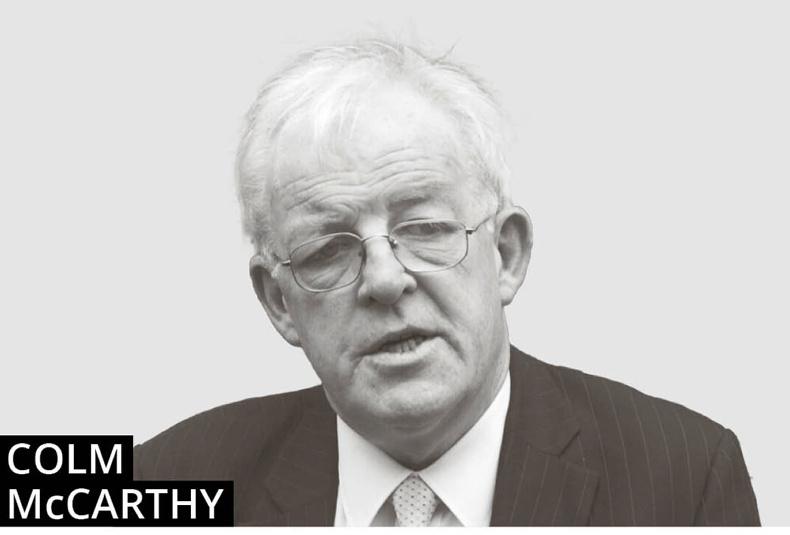The UK election result has been heralded as good news in Ireland, since it could mean a ‘softer’ form of Brexit, with possibly better implications for agriculture and the food industry. This expectation has been reinforced with the involvement of the Democratic Unionist Party in a deal to support Theresa May’s government, since the DUP have rural voters to worry about and do not want a hard border in Ireland.
The celebrations could be premature. The Conservative manifesto committed to departure from the single market and, quite explicitly, from the customs union as well. The Conservatives are the sole party forming the next government, with DUP support but not in a coalition, and there would normally be no joint programme – the programme should be simply the manifesto. But any inclination on the part of Mrs May to stick by the manifesto has been mugged by political reality: the hard Brexit option is opposed by the DUP and also by the Scottish Conservatives, of whom there are now 13. It was always opposed by a large slice of the parliamentary Conservative party who will feel emboldened by the electorate’s thumbs-down to the manifesto. The manifesto commitments on Brexit are, from a UK perspective, a millstone to be cast aside, opening the way to some softer version of Brexit, for example a Norway-style deal which would see the UK depart the EU but stay in the single market.
But from an EU-27 perspective things are not so simple. A Norway-style deal for the UK would require far more negotiating time than is available. One of the few advantages of a ‘no-deal’ outcome has always been that it can actually be delivered in the time available.
From an Irish perspective, the Norway option is not salvation either – agriculture is not covered and the UK will be departing the Common Agricultural Policy unless it remains in the EU, that is, reverses the referendum result. The Common Agricultural Policy is a feature of the European Union, not of adherence by non-members to relationships with the single market or the customs union.
Moreover, any shift by Mrs May to a Norway option will split the Tory party all over again: it would imply the acceptance of free movement, continuing payments into the EU budget and a continuing role for the European Court of Justice.
There are other options besides the Norway template, including retention of membership in the customs union. But this would entail abandonment of Brexiteer ambitions for new trade deals outside Europe.
If you thought that British politics was in a difficult corner before this needless election, things have just got much more complicated.
Prior to the election, there was a continuum of possible forms that Brexit might conceivably take, ranging from soft Norway-style options, all the way to the ultra-hard outcome of no deal and a crash-out on 29 March 2019. It is tempting to regard the post-election reality as ruling out the harder outcomes, including the crash-out. But this may not be the case.
Conservative split
It is certainly true that a majority in the new House of Commons would favour a softer stance than was articulated in the Conservative manifesto. However, the likelihood that the Conservative party will split once again on Europe is not trivial. Should it do so there will be a leadership battle and quite possibly another general election.
At the time of writing, the UK government does not have a Brexit strategy. Nobody knows the UK’s preference for its future relationship with the EU and there is no certainty that this can be clarified in an orderly fashion, without further political turmoil. A change of government would not make the problem go away, since the Labour party is also split on Europe.
All of this eats further into the limited negotiation time available, eight weeks of which has been squandered on the inconclusive election.
Far from eliminating the risk of the crash-out version of a hard Brexit, the election outcome may have rendered it more likely. It could happen by accident rather than as the explicit negotiating option enshrined in Mrs May’s “no deal is better than a bad deal” mantra.
Crash-out option
There are some in continental Europe who might secretly favour a British crash-out. Most continental EU countries do not face enormous economic dislocation consequent on the hard form of Brexit and Ireland is easily the most exposed among the EU-27.
Beneath the surface, there is a ‘good riddance’ attitude in both France and Germany, a feeling that further development of the European project becomes easier without the British and that there is no great incentive to keep them close. This European attitude is inimical to Irish interests north and south. Both the Irish Government and the DUP will need to resist the drift to crash-out.




SHARING OPTIONS